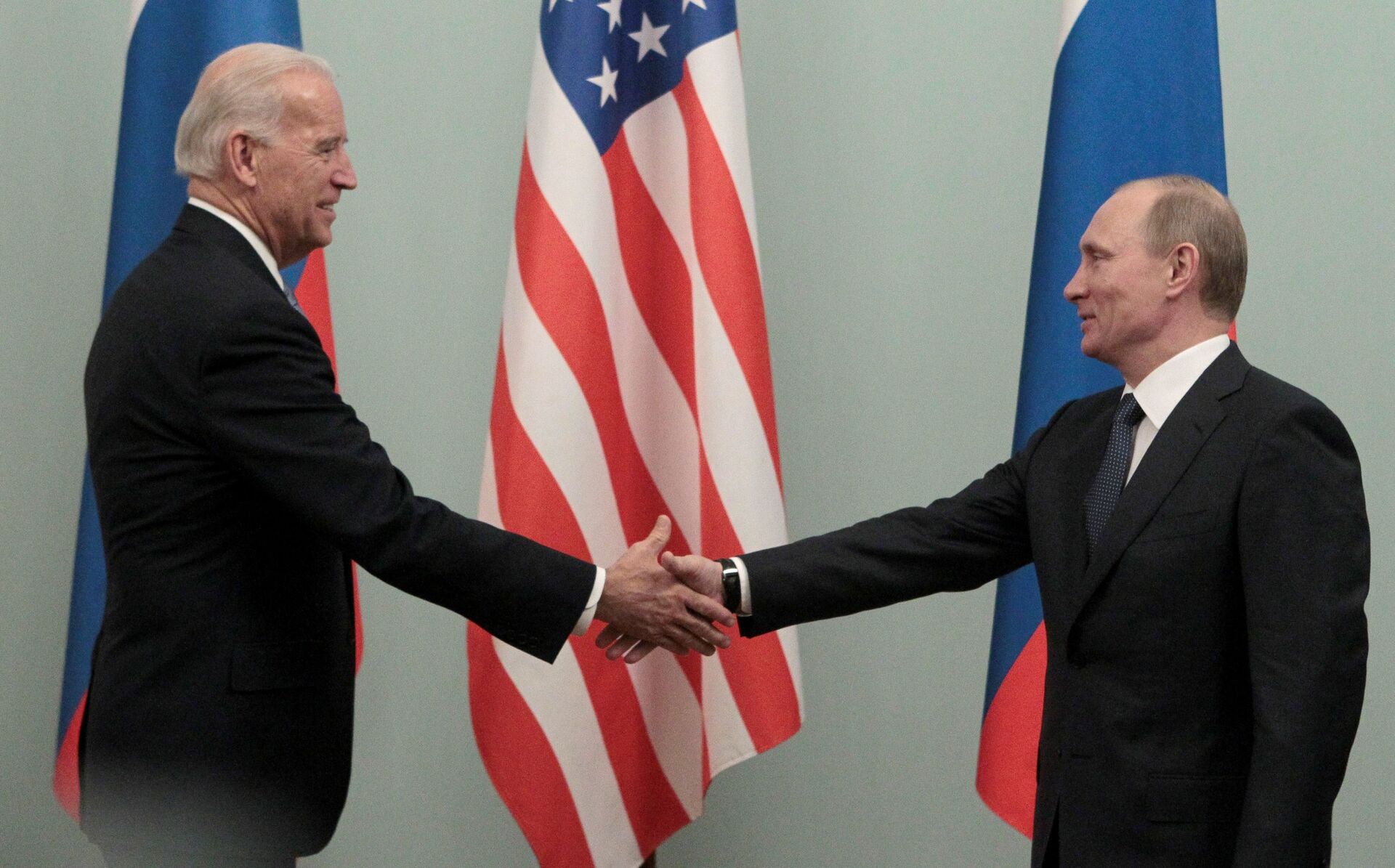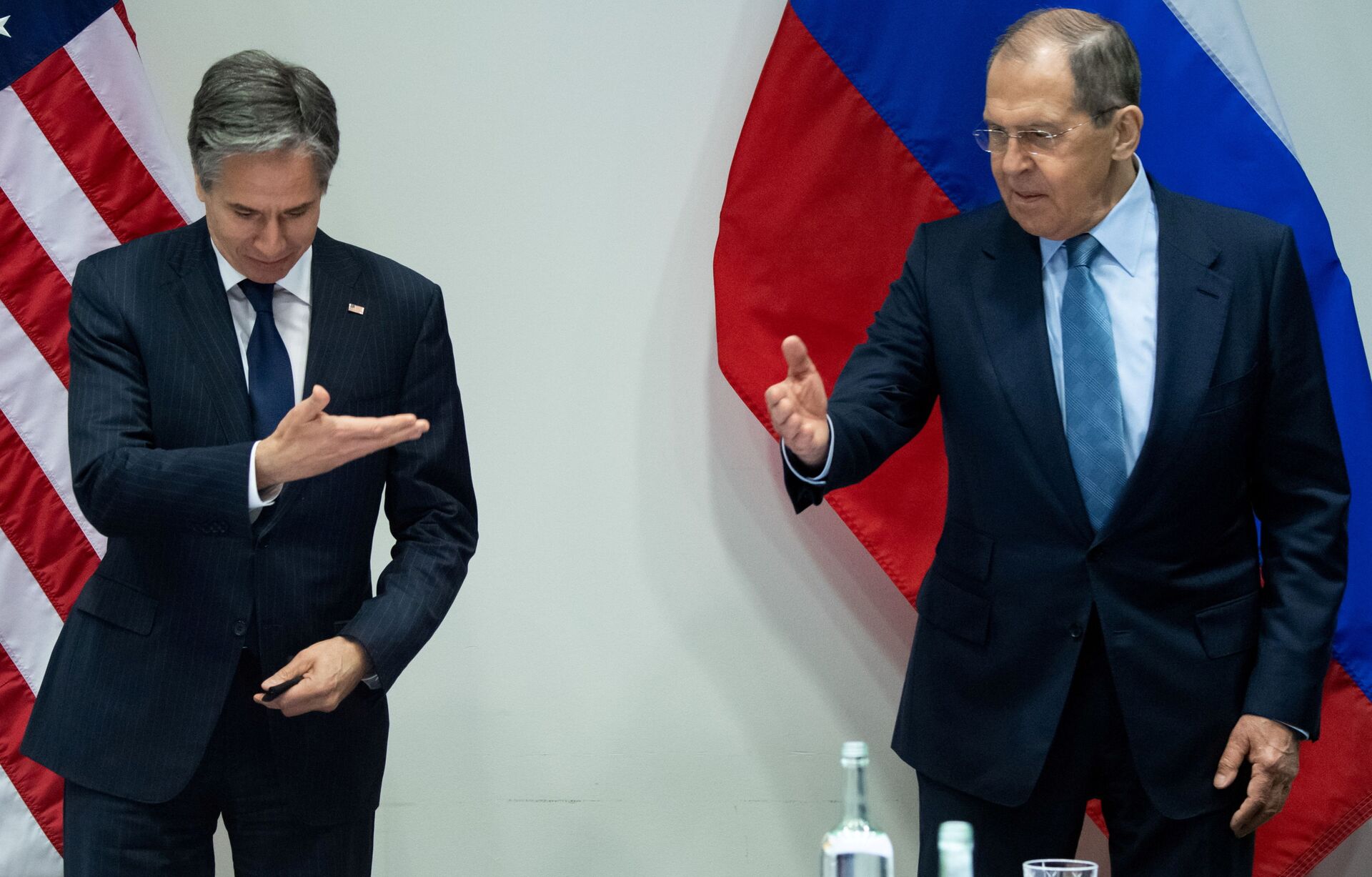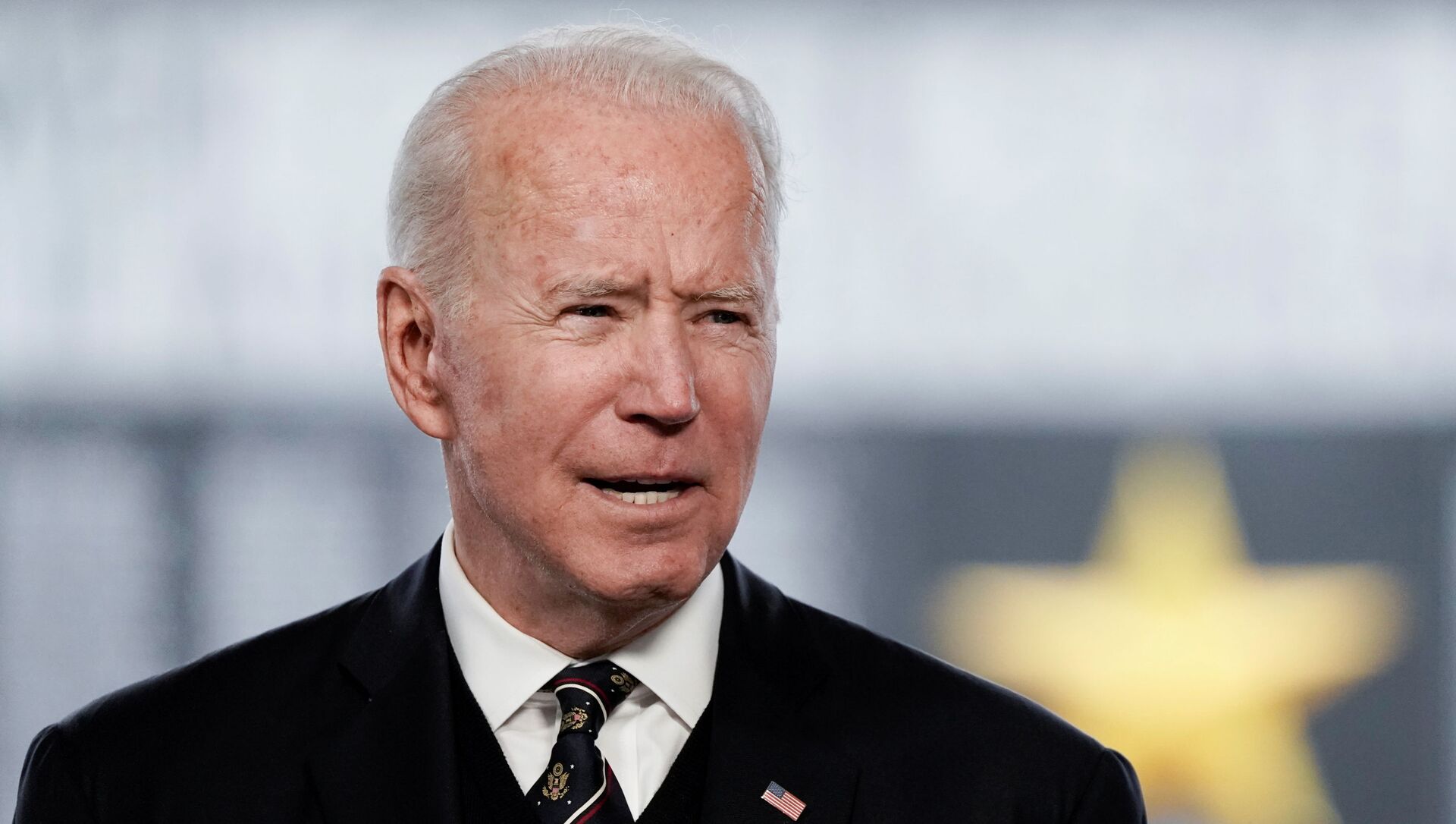US President Joe Biden has said he intends to take up the issue of human rights with his Russian counterpart, Vladimir Putin, at their summit scheduled for 16 June.
"I'm meeting with President Putin in a couple weeks in Geneva making it clear we will not, we will not stand by and let him abuse those rights," said Biden during a speech honoring the US holiday Memorial Day on Sunday.
In announcing the meeting earlier, the White House said the two leaders would be focusing on a range of issues in a bid to restore "predictability and stability" in Washington-Moscow relations.

The Kremlin expects that Putin and Biden will discuss issues such as strategic stability and the US-Russia relationship itself at the upcoming Geneva talks. The White House said that Ukraine, Belarus, the New START, and Iran would be on the agenda.
On 26 January, shortly after Joe Biden's inauguration, the two leaders spoke on the phone for the first time. During that talk, they reached an agreement on the New START Treaty, which was extended in February for five years and is now set to end in February 2026.
The treaty is the sole remaining arms control agreement still in place between the two nuclear powers.
Earlier this month, Russian Foreign Minister Sergei Lavrov praised US Secretary of State Antony Blinken's constructive approach at their first in-person meeting on the sidelines of the 12th Arctic Council Ministerial Meeting in Reykjavik, Iceland this month.

Lavrov underscored that Russia and the United States, as the two largest nuclear powers, have a special responsibility for maintaining strategic stability and international security.
Ties Tainted by Unproven Allegations
Russia-US relations have been strained over a host of unproven allegations targeting the Kremlin, ranging from claims of Moscow’s election interference to cyberattacks against Washington.
The latest cybersecurity breach of a US federal agency, attributed to Russia, was earlier cited by the White House as unlikely to impact the upcoming summit between US President Joe Biden and Russian President Vladimir Putin.
"No changes to the summit. We're going to move forward with that", said WH Deputy Press Secretary Karine Jean-Pierre said on Friday.
Microsoft had previously claimed that a cyber actor identified as Nobelium, originating in Russia, launched a widespread malicious email campaign targeting private organizations and government agencies, including the US Agency for International Development.
Nobelium was deemed to be the same actor behind the attacks on SolarWinds customers in 2020, according to a statement of the US multinational technology company made on Thursday.
Nobelium allegedly used USAID's account for email marketing service Constant Contact to launch the fresh spate of attacks, with hackers using it to send out phishing emails, distributing a backdoor known as NativeZone. The latter facilitates stealing data and infecting other computers connected to the same network. Moscow was blamed for the US tech firm SolarWinds hack last year.
The Texas-based information technology company that supported government data had been targeted by a massive cyberattack, with hackers gaining access to the data of private companies, such as cybersecurity firm FireEye and the upper echelons of the US government, including the Department of Homeland Security and the Treasury Department.
In that attack, corrupted SolarWinds software was ostensibly used to install malicious programmes. As was the case with similar accusations in the past, the White House failed to corroborate claims of Russia having a role in the hacking attack with any solid evidence.
The allegations were dismissed by Moscow as part of the US intelligence’s false flag operation to secure more funding.
“The accusations against Moscow are unfounded and look more and more absurd," Russian Foreign Ministry spokeswoman Maria Zakharova said at a briefing earlier in May.
Russian Foreign Intelligence Service Director Sergey Naryshkin, reiterating the fact that baseless accusations were being manipulated to serve US interests, expressed the belief that American spy agencies could be behind the hacking attack.
Nevertheless, Washington announced a new round of sanctions on 15 April in response to Moscow's alleged involvement in the hack and purported election meddling in 2020. The Biden administration recently expelled 10 Russian diplomats from the United States and imposed sanctions on 32 Russian entities and individuals.
Russia responded in kind, by expelling 10 American diplomats and promising to limit the US diplomatic mission's ability to travel in Russia and hire locals. The Kremlin also put eight current and former US officials responsible for developing anti-Russia policies in Washington on a no-entry list.



